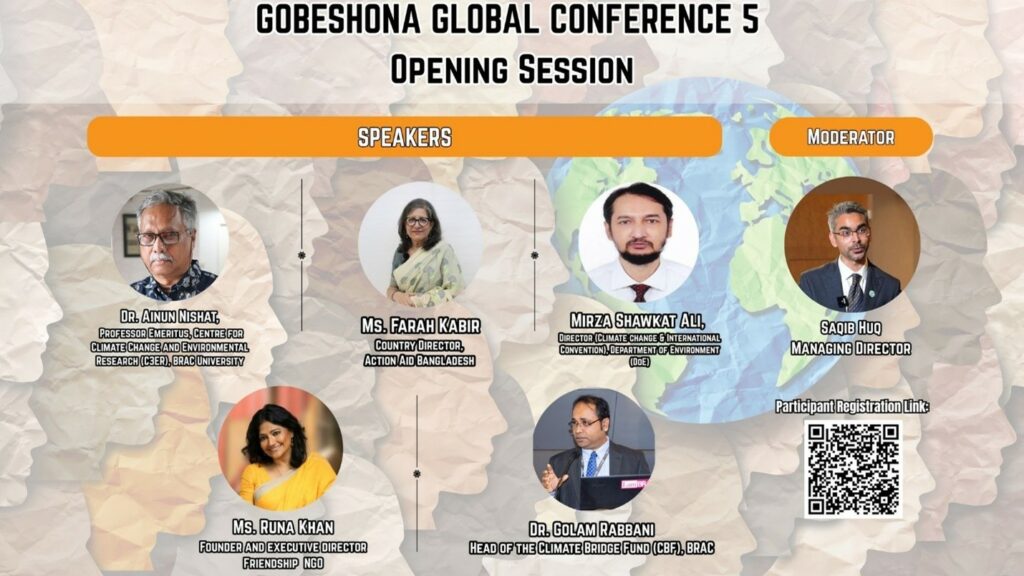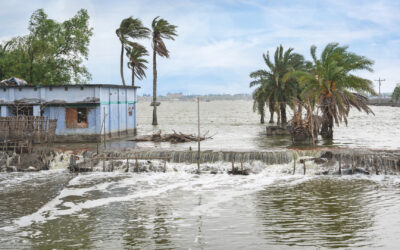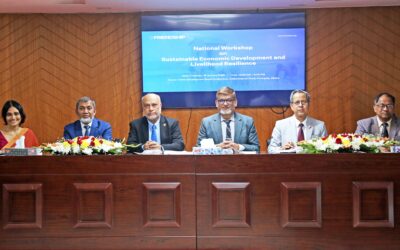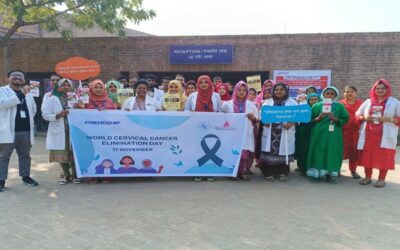Friendship founder shares insights on LLA at the opening session of the Gobeshona Global Conference 5

by Friendship News Desk
28 April, 2025
Hosted by the International Centre for Climate Change and Development (ICCCAD) from 26 – 30 April, 2025, the Gobeshona platform brought a diverse panel of experts together to discuss locally led adaptation (LLA), a theme relevant in countries like Bangladesh, where the most vulnerable yet resilient communities face the brunt of climate change.
Friendship has been working on locally led adaptation solutions for the past 23 years. It continues to work with climate migrants to develop solutions for them, that provide opportunity, dignity, and hope sustainably. When Friendship started out, there was no roadmap. Thus, each service needed to be rethought and innovated with the support of those communities, in a bottom-up approach that keeps their needs front and centre in development. Implementing LLA was not a conscious choice, but an organic one since it was the reality for marginalised communities directly burdened by climate change.
According to the OECD 2024, around 10% of climate financing reaches the local actors. The rural poor of Bangladesh spend more than 2 billion from their own pockets on adaptation, far more than what they receive as aid. By 2050, it is expected that 40 million people are set to be displaced by climate change. Bangladesh stands as the ‘seventh extreme disaster risk-prone country in the world’ on the Global Climate Risk Index 2021. Despite this scenario, Bangladesh receives only 1% of climate financing dedicated to adaptation.
“We have learned at Friendship that even amongst devastation, communities can and will rebuild themselves if they are given the tools. We do not need to teach resilience to them. We need to nurture that resilience within them, respect it, and resource it so that it is giving them a platform on which they can stand,” Runa Khan, founder of Friendship, shared at the starting ceremony. She also emphasised on putting dignity and justice at the heart of every action taken, and thanked Gobeshona for their support and their work over the years.
ICCCAD Managing Director Saqib Huq moderated the event. Other panellists include Mirza Shawkat Ali, director (Climate Change & International Convention) at the Department of Environment; Dr. Golam Rabbani, head of the Climate Bridge Fund (CBF) at Brac; Dr. Ainun Nishat, Professor Emeritus at the Centre for Climate Change and Environmental Research (C3ER) of Brac University; and Farah Kabir, country director of ActionAid Bangladesh.



